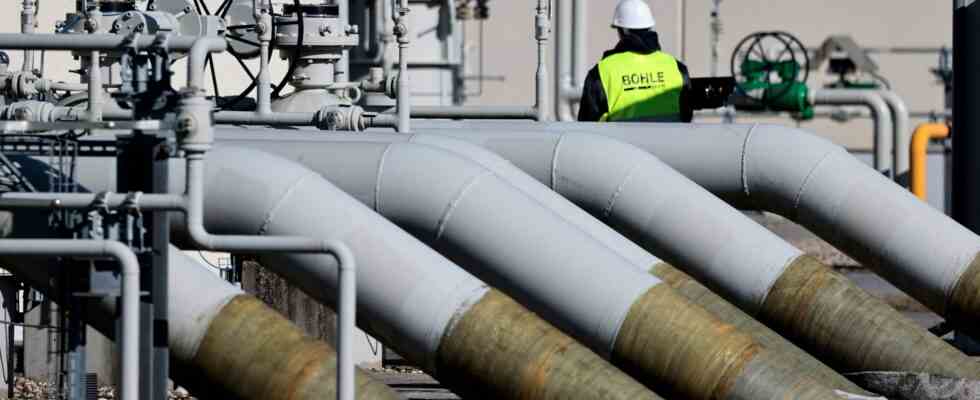Status: 08/04/2022 10:04 a.m
In order to achieve the European Union’s savings target of 15 percent, Germany has to reduce gas consumption more than any other EU country. The industry association BDI calls for more speed.
In the coming months, Germany will have to reduce gas consumption significantly more than the other countries in the European Union. Like data from the EU Commission, according to the news agency dpa show that the Federal Republic of Germany will have to consume a good 10 billion cubic meters less gas between the beginning of August and March next year in order to achieve the target set by the EU countries.
The amount of gas that can be saved in Germany is roughly equivalent to the average annual consumption of five million four-person households. Because 10 billion cubic meters of gas correspond to around 100 billion kilowatt hours, and a typical four-person household in Germany consumes around 20,000 kilowatt hours a year.
Italy also has to reduce consumption significantly
Europe’s largest economy has to save more than others because of its comparatively high gas consumption. Next comes Italy – with a needed saving of just over 8 billion cubic meters by March next year. France and the Netherlands both need to use around five billion cubic meters less. Overall, the EU must save around 45 billion cubic meters of gas. Germany would be responsible for almost a quarter of the savings.
In view of the ambitious savings target, German industry is calling on the federal government to speed up gas-saving measures. The President of the Federation of German Industries (BDI), Siegfried Russwurm, also criticized that the fuel switch in companies away from gas, for example back to oil, was being slowed down by lengthy approval processes.
“Biggest energy crisis in the history of the Federal Republic”
Russwurm also called for more speed, for example when replacing electricity generation from gas by restarting coal-fired power plants. Economics Minister Robert Habeck (Greens) declared on June 18 that coal-fired power plants would have to be taken out of the reserve. It was only seven weeks later that the first one went back online.
“That’s not the speed that Germany needs in crisis management,” said Russwurm. “Germany is in the middle of the greatest energy crisis since the Federal Republic came into existence. Business and private consumers must do their part to save gas in order to prevent production stops. It is now a matter of determination and speed.”
Habeck sees Germany on the right track
Against the background of the war in Ukraine, the EU countries had agreed on an emergency plan because a complete stop to Russian gas supplies was feared. The plan is to voluntarily reduce national consumption by 15 percent between August 1, 2022 and March 31, 2023 – compared to the average consumption for the same period over the past five years. If not enough is saved and there are far-reaching supply bottlenecks, an alarm with binding savings targets can be triggered in the EU.
According to Economics Minister Robert Habeck (Greens), Germany is already on the right track. According to this, the Federal Republic has savings of 14 or 15 percent – but compared to the previous year and not adjusted for temperature. Habeck said last week in Brussels that Germany should reduce its consumption by more than the agreed 15 percent, i.e. more than 10 billion cubic meters of gas.

